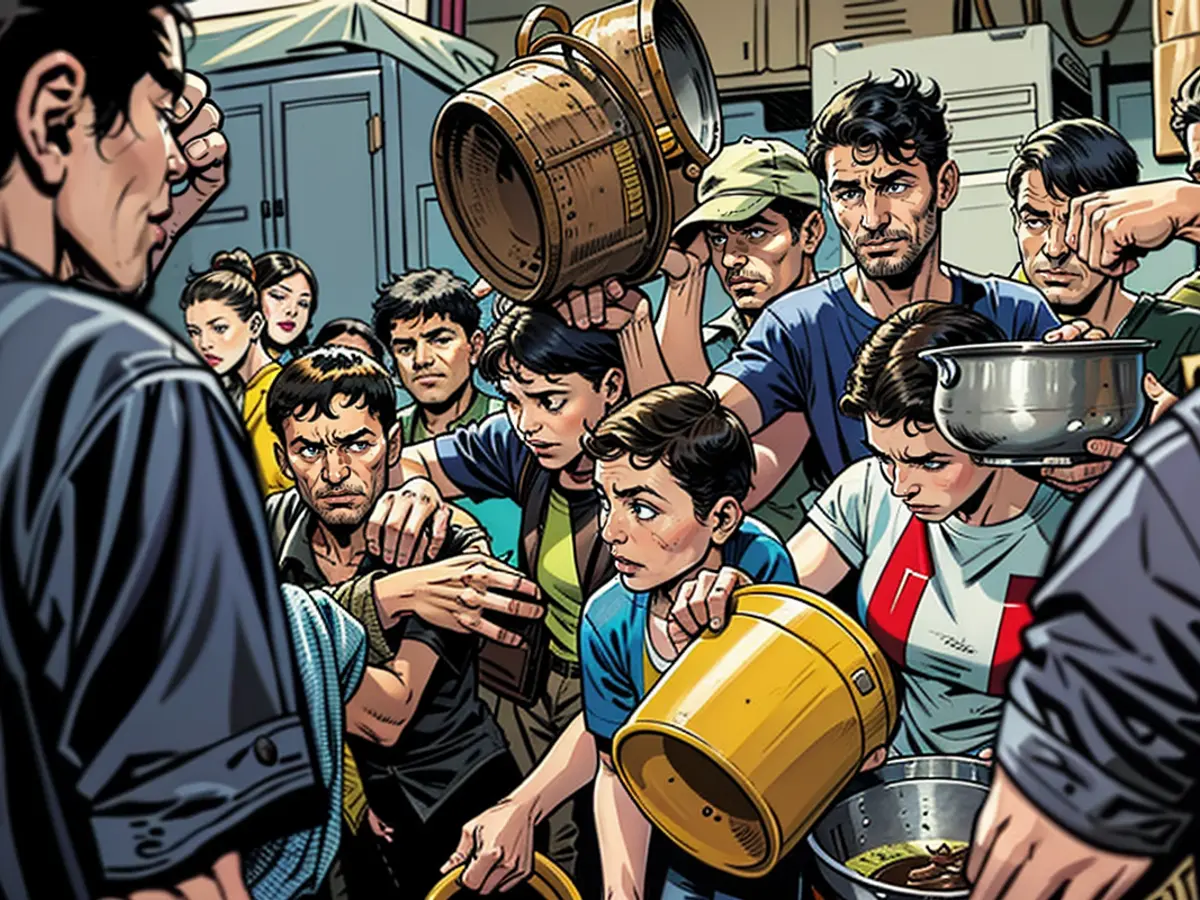Israel's Proposed 'Tactical Break' for Aid Sparks Debate and Widens Divides. Here's What We've Learned.
The statement comes as over 2 million civilians in the strip encounter inhumane conditions, a term used by the United Nations to describe their situation.
The conflict, initiated in October following Hamas' assault on Israel that led to around 1,200 fatalities and 250 hostages, is now nine months old, with no signs of a ceasefire-hostage agreement in the near future. The ongoing fighting has reportedly claimed the lives of over 37,000 people in Gaza, according to the local health ministry. On Saturday, eight Israeli soldiers were killed in southern Gaza, one of the deadliest single incidents since the war started. The death toll for Israeli Defense Force (IDF) soldiers has surpassed 300.
The halt, announced by the IDF on Sunday but later confirmed by COGAT, the Israeli agency responsible for approving aid into Gaza, commenced on Saturday. This move has sparked questions about its implications for the conflict and the humanitarian crisis in Gaza. Human rights organizations have highlighted severe health concerns in Gaza, with over 75% of the population displaced, according to UNRWA, the UN's agency for Palestinian refugees. Israel's military campaign has brought destruction to neighborhoods, damaged health facilities, and depleted food, water, and fuel supplies in Gaza.
The announcement also appears to have exacerbated political divisions within the Israeli government, with Prime Minister Benjamin Netanyahu reportedly displeased on hearing about it.
Here's what we've learned so far.
What did Israel announce?
The IDF declared a "local, tactical pause of military activity for humanitarian purposes" that will take place daily from 8 a.m. to 7 p.m. local time until further notice. The pause, which began on Saturday, intends to allow trucks to pass from the Kerem Shalom Crossing, the primary entry point for aid to southern Gaza, along the Salah al-Din Road and towards the north.
The IDF provided a designated route for aid trucks to follow, starting from Kerem Shalom, passing through Al Bayuk neighborhood, and reaching the European Hospital in Khan Younis. The international community will coordinate this route, as per the IDF's statement, to increase the volume of aid delivered to Gaza.
However, soon after announcing this move, the IDF clarified that the fighting in Rafah continued, and the policy regarding aid into the strip remained unchanged.
In response to a question from CNN's Paula Hancocks during a briefing to international media in Kerem Shalom on Monday, Israeli military spokesman Rear Adm. Daniel Hagari stated that "sometimes when you say a tactical pause, people might think that we’re stopping the fighting in Gaza." Hagari further explained that the pause was intended to ensure the continuous distribution of aid during specific hours.
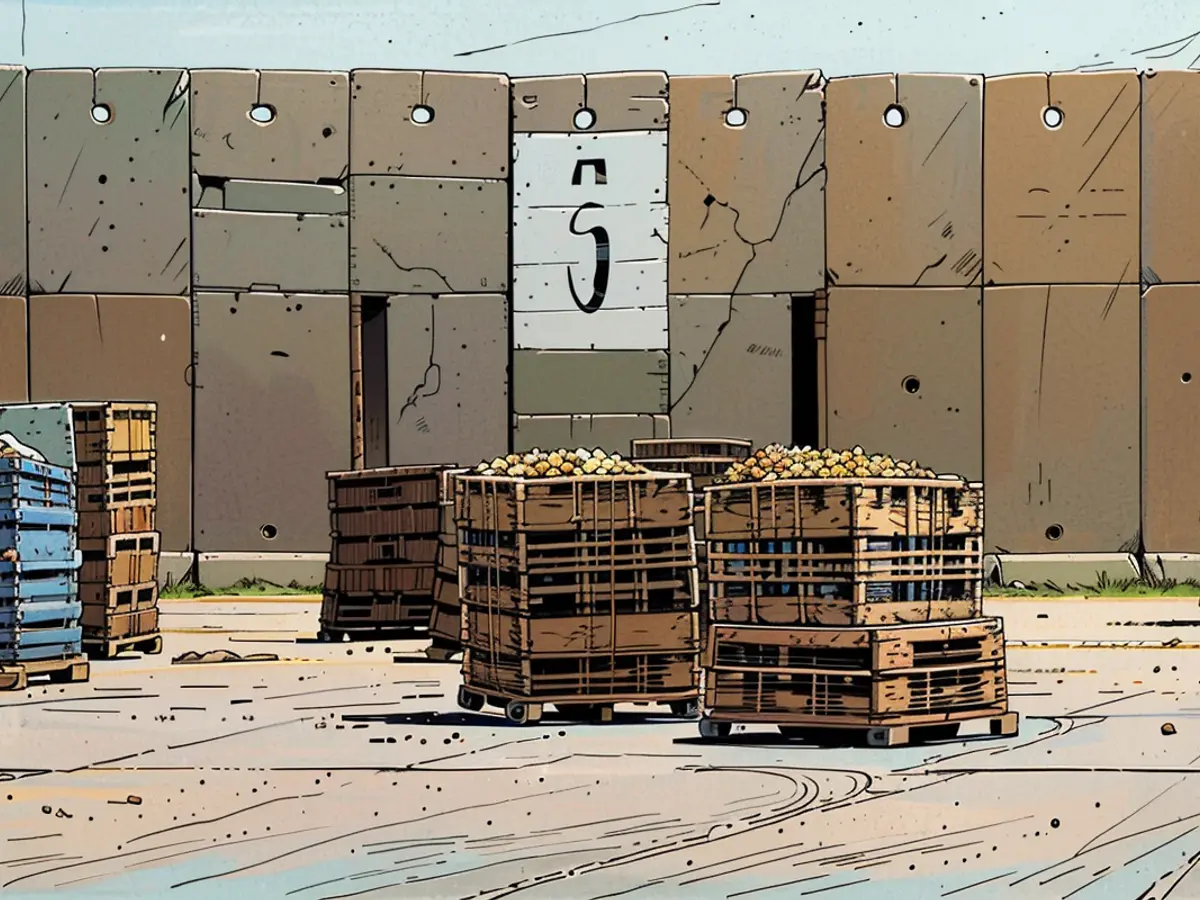
What will it mean in practice?
The IDF stated that the humanitarian pause aims to assist the UN in gathering and distributing aid at its crossings, where aid is reported to be piling up. COGAT mentioned on Sunday that there are approximately 1,000 humanitarian aid trucks lined up on the Gazan side of the Kerem Shalom crossing, awaiting collection and distribution.
Georgios Petropoulos, head of the UN humanitarian affairs (UNOCHA) suboffice in Gaza, told CNN on Monday that the pause "was not a new thing on the ground," and that there are several obstacles preventing aid workers from reaching parts of the Palestinian enclave. These include the ongoing fighting between Israel and Hamas, as well as the danger on travel routes due to a lack of law and order in many areas of Gaza.
The pause, according to Petropoulos, is merely a repackaging of an existing practice in Gaza for over a week, with the designated route being used by the UN for days. When roads are unsafe, aid trucks cannot travel. "The war between Hamas and Israel is not the only issue we have on the ground," Petropoulos added.
It remains unclear how effective the pause will be, as the IDF has previously designated safe routes for aid convoys, only to have those convoys later targeted. In April, an Israeli attack that claimed the lives of seven aid workers from the non-profit World Central Kitchen in Gaza struck what the team described as a "deconflicted zone" in coordination with the Israeli military.
Aid organizations claim that no visible improvements have been observed on the ground yet. "We have not seen any improvements thus far," said Scott Anderson, director of UNRWA affairs in Gaza, emphasizing that "the law and order environment in Gaza is not enabling the efficient delivery of aid."
The spokesperson for the UN Children's Fund, James Elder, warned that the pause could not replace a ceasefire. "I just don't know unfortunately (how long the pause will last), this is a question for the occupying power, for Israel and its military."
What is the current aid situation in Gaza?
The more than eight-month-long humanitarian crisis in Gaza is worsening. The death toll in the besieged enclave has reached over 50,000, according to the health ministry there, and more than half the population has been internally displaced.
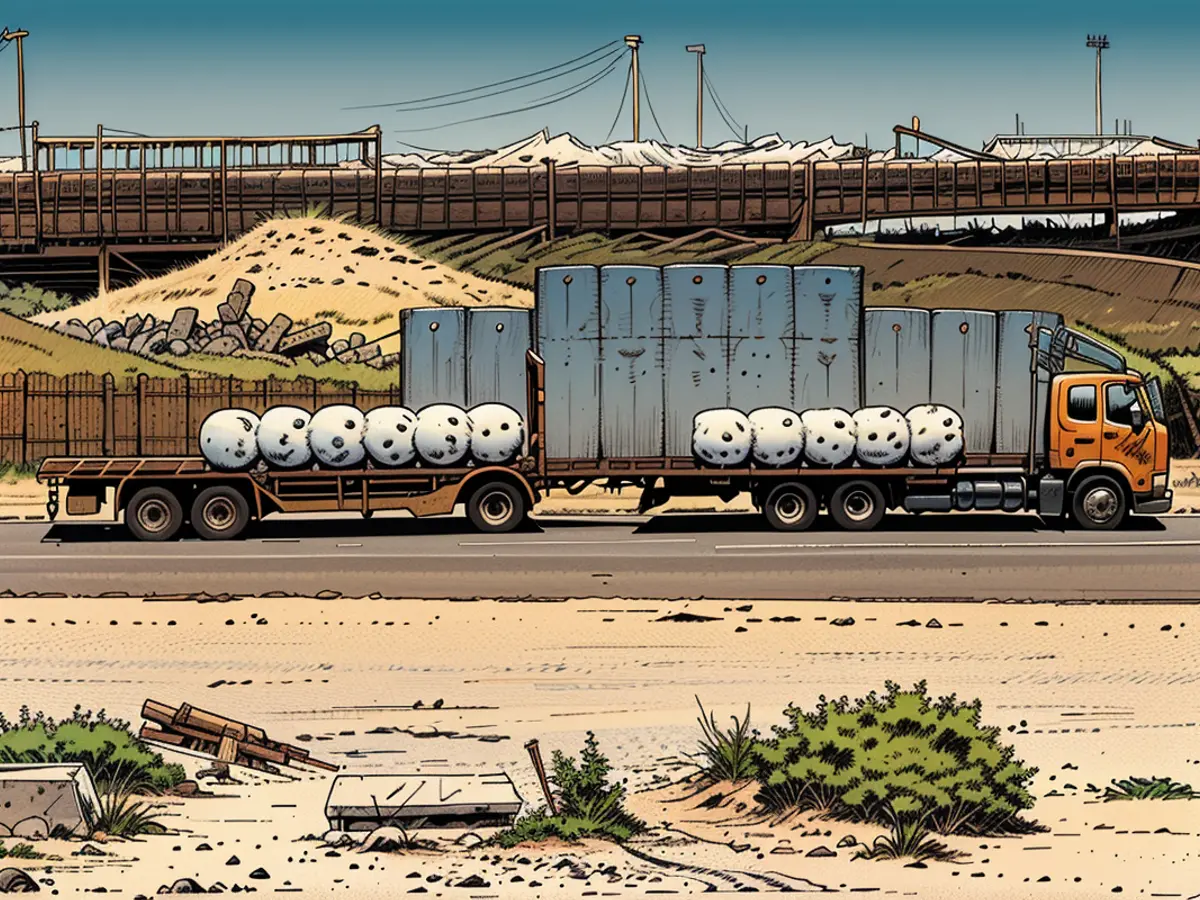
The citizens of Gaza are facing severe food scarcity, with over 50,000 children requiring treatment for acute malnutrition, according to UNRWA. Hospitals are in ruins, medical supplies are scarce, and humanitarian access remains limited, the UN agency stated.
According to UNRWA's data, only 60 trucks entered Gaza on June 12, the last batch the UN agency has recorded.
Border passages, reputedly the best means for dispatching aid to Gaza, are still restricted. Only two out of five border passages have been operational for aid vehicles lately. These are the Kerem Shalom and Western Erez crossings, which are supervised by Israel.
A US military-constructed harbor near Gaza has also been closed due to rough sea conditions, obstructing the delivery of sea-based aid.
The Government Media Office (GMO) in Gaza has refuted claims of a "strategic halt" in the southern Gaza Strip.
"Claims about a strategic halt in war are Israeli fabrications," the GMO asserted in a statement on Sunday. "We are still urging the opening of the Rafah crossing to cater to the population's needs, particularly in the northern Gaza Strip."
What has the Israeli administration commented?
The source of the halt is ambiguous because several high-ranking Israeli officials were not privy to the decision before it was announced. This group includes the prime minister, who initially distanced himself from the halt.
One Israeli official noted that Netanyahu had inquired about the individual behind the halt and was displeased when informed.
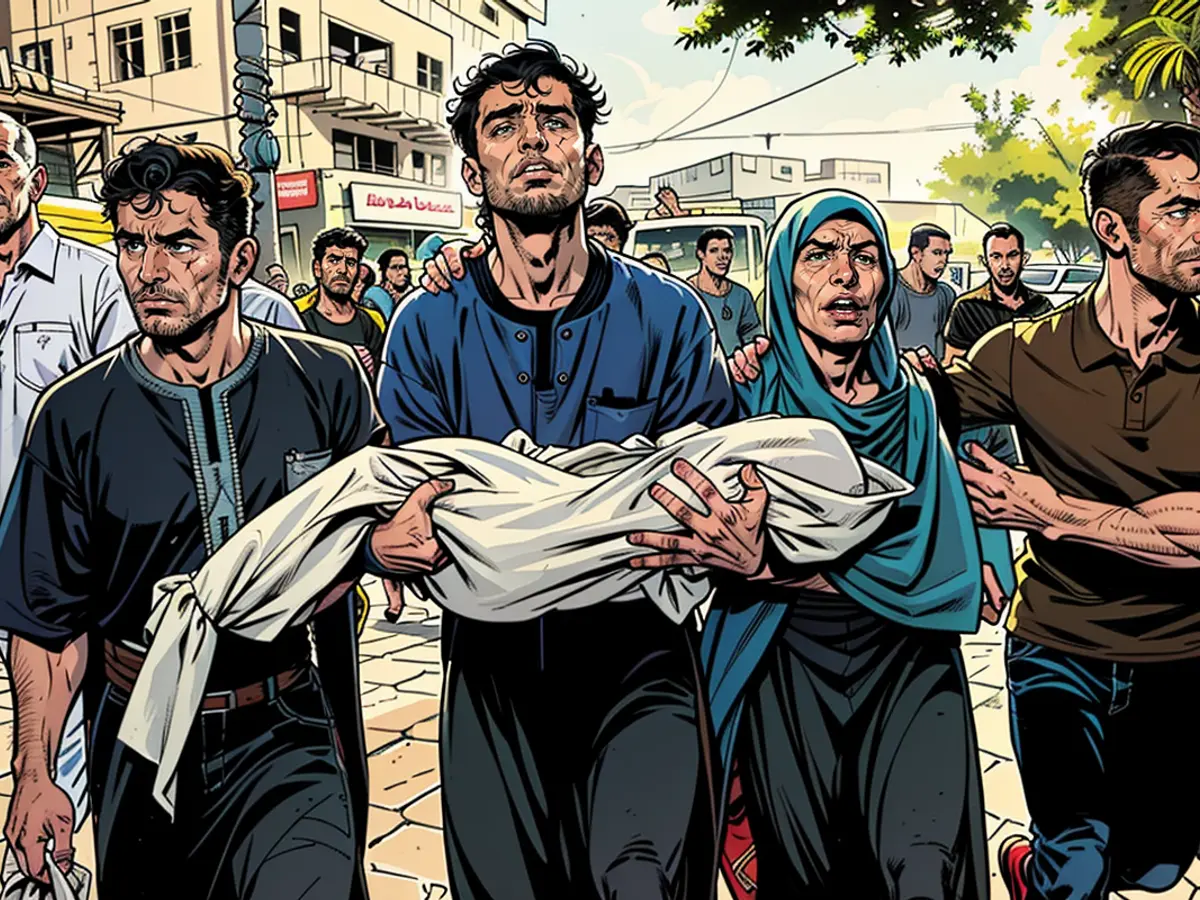
Netanyahu subsequently contacted his military secretary and stated that the notion was unacceptable until he was assured that the conflict in Rafah would persist, as per the official who spoke to CNN on Sunday and requested anonymity.
Extreme Right National Security Minister Itamar Ben-Gvir also denounced the halt. "Anyone who instituted a 'strategic halt' for humanitarian purposes, particularly at a critical moment when our finest soldiers are falling in battle, is immoral and foolish, and should not maintain their position," he declared.
These disagreements, which escalated into public quarrels through statements and in the Israeli media, have augmented fractures within the nation's government.
The IDF announced on Monday that the decision was made by the military, not the Israeli government.
The announcement of the halt was made "following the request of the IDF's political echelon over the past few weeks to permit the introduction of aid, and to publicize this to the world," the military told CNN in a statement.
The halt is intended to fulfill the demands of the International Court of Justice concerning Gaza aid deliveries prior to a court hearing by the end of June, it added.
The halt is "designed for the hearing... at the International Court of Justice in The Hague, where Israel must demonstrate that it did not breach the order it issued regarding the conflict in Rafah," which thwarted a court order to suspend the war, the IDF stated.
The ICJ is probing a case initiated by Pretoria against Israel, where South Africa alleges Israel has committed genocide against Palestinians during the war. In May, it ordered Israel to immediately cease its contentious military operation in Rafah, stating that the court considers the humanitarian situation in the southern city to be catastrophic. Israeli officials have criticized the ICJ's ruling.
CNN’s Vasco Cotovio, Florence Davey-Attley, Kareem Khadder, Eyad Kourdi, Ibrahim Dahman, Andrew Raine, Tim Lister, Abeer Salman, and Kathleen Magramo contributed reporting.
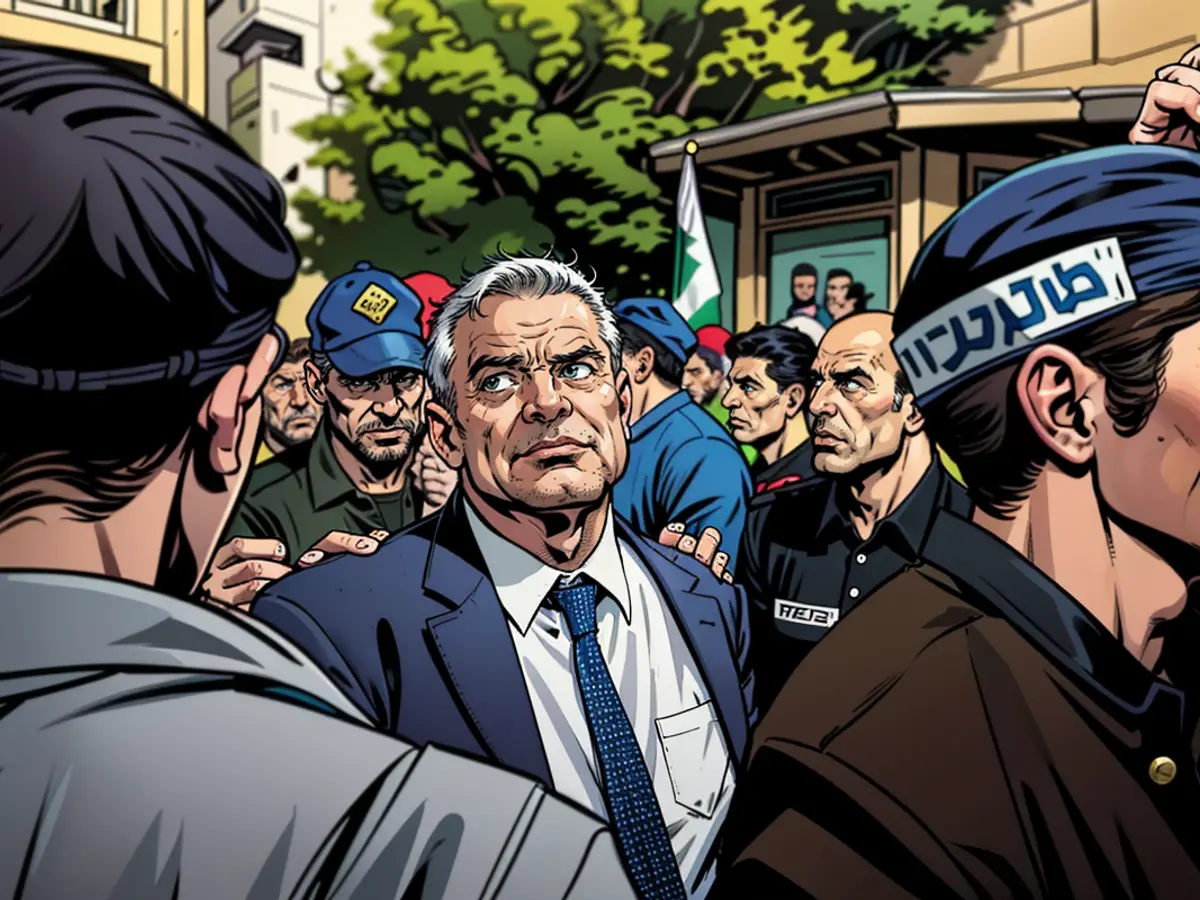
Read also:
The Israeli government's decision to introduce a "tactical break" for aid delivery in the Middle East has sparked interest from the international community, with many questioning its implications for the ongoing conflict and humanitarian crisis in Gaza.
Despite being a region of significant global concern, the Middle East's ongoing issues, including the conflict in Gaza, continue to impact the world at large, with humanitarian organizations highlighting the severe health concerns and widespread displacement of civilians.
